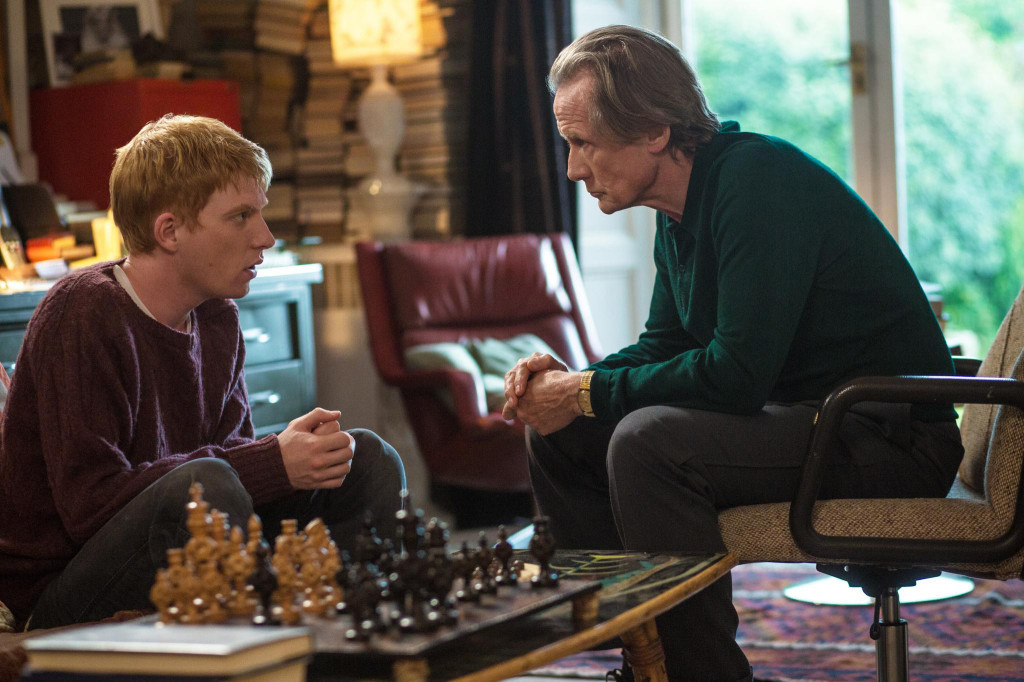
Dorothy Woodend talks DOXA’s Spotlight on the Future
By Angela Espinoza, Arts Editor
The DOXA Documentary Film Festival starts up again in May, and with five theatres (Pacific Cinémathèque, Vancity Theatre, Vancouver Playhouse, Rio Theatre, and Collingwood Cinema) and well over 70 films in its 2013 lineup, things are looking spectacular. Festival Programmer Dorothy Woodend took some time to speak with us last week on the upcoming event, highlighting this year’s Spotlight.
“The thing about DOXA is every year we try something different,” Woodend starts, “because I think that’s what keeps things fresh and fun and interesting. One of the key differences this year is the… Spotlight on the Future that incorporates, not just the films themselves—that are about developments in medicine and technology—but also in… how films are made in terms of documentary practice.
“A lot of the more interesting and engaging films that came in this year, [we] took a look at them and thought, ‘I don’t know what this is.’ But there was a couple in particular that really stretched the boundaries of I think what’s possible in terms of narrative and documentary story-telling specifically. On the face of it, they look like a strange combination of science fiction and documentary, which, you couldn’t… find two genres more dissimilar. The kind of convergence of those two things blew me back a bit because it was really fascinating.”
Woodend described the aesthetics of several films in great detail, pointing out some of the can’t-miss features of the Spotlight on the Future. Of the eight features in this year’s program, Woodend focused on the following three.
“Our special screening that we’re offering at the Playhouse this year is a film called Google and the World Brain. [The film] launches with an interview that they did with H.G. Wells in 1938, when he was writing about a future scenario he’d envisioned about people being able to share knowledge all around the world and how it was… a ‘world brain,’ which turned into, some would think, the Internet and World Wide Web and all that stuff.
“One of the other ones that’s in the Spotlight on the Future this year is a film called There Will Be Some Who Will Not Fear Even That Void, which is, ostensibly in the way that the filmmaker describes it, a ‘science fiction documentary.’ The very first time I watched it [with] everyone who was on the screen committee… we realized, ‘wait a minute, this is not real essentially.’
“What the story is basically is he [director Saeed Taji Farouky] envisioned this group of artists who are kind of documenting the Arctic in a state of decline somewhere in a future scenario. It’s taking documentary practice and documentary elements and… creating a sort of strange symbiosis of science fiction narrative and documentary filmmaking. It’s beautiful and strange and surreal and hilarious and sad and just an interesting combination of film and media qualities and elements, that, as a programmer, that’s the one thing you kind of [look for, when] your ‘Spidey-senses’ start to tingle. We’ll premiere that film eventually [at DOXA], which we’re really quite happy about.”
The final film Woodend brought up went on to become a 10-minute discussion in itself. The following is a brief sampling of, from what Woodend described, I can assume will be a fantastic and very powerful film.
“We have films that are part of the Focus Forward areas, which… deal specifically with people who are really pushing innovation, whether that’s medicine or even something like… food practice, sustainability, the guy who invented the means of actually creating clean water, and dealing with pollution. There are all these kinds of technological solutions to essentially the problems that the humans have created for themselves, which is [the focus of] another one of the films in the Spotlight this year is called…Critical Mass. Mike Freedman is the filmmaker—and he’s coming with the film this year—but he takes this sort of leaping off point with a series of experiments that a scientist named John B. Calhoun did in the ‘60s in California where he basically built, it’s called a ‘rat city.’ It’s a rat population study where he had an enclosed area where he gave the rats all the sort of resources, food, water, places to live that they could basically needed, and [he] watched what happened as the population exploded. At one point in the rat population, when it reached such a certain density, [Calhoun] had to break down and then he sort of drew correlations between those experiments and what happens in urban centers with human populations, and he found some pretty disturbing stuff.”
The Spotlight on the Future is just one of four special programs this year, including Justice Forum, Rated Y for Youth, and Philosopher’s Café (which I can attest is a fantastic opportunity to discuss subjects beyond certain films). The DOXA Documentary Film Festival runs from May 3 to 12, so heed my advice and get your tickets early!

